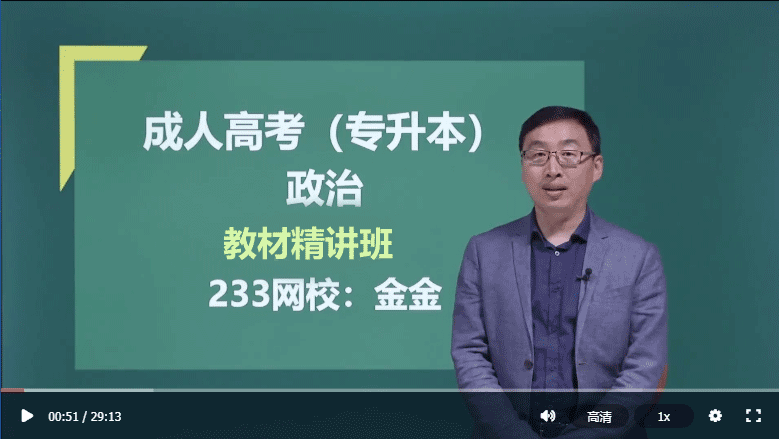жҲҗдәәй«ҳиҖғй«ҳдёӯиө·зӮ№иӢұиҜӯеҗҢд№үиҜҚи§ЈжһҗпјҲдёҖпјү
гҖҖгҖҖreserve жҢҮвҖңдёәдёҖзӣ®зҡ„дҝқжҢҒпјҢ жҲ–дҝқеӯҳдёҖж®өж—¶й—ҙвҖқпјҢ еҰӮпјҡ
гҖҖгҖҖA great future is reserved for you.
гҖҖгҖҖе…үжҳҺзҡ„еүҚзЁӢеңЁзӯүеҫ…зқҖдҪ гҖӮ
гҖҖгҖҖremain stay
гҖҖгҖҖйғҪжҢҮвҖң继з»ӯеҒңз•ҷвҖқжҲ–вҖң继з»ӯдҝқжҢҒжҹҗз§ҚзҠ¶жҖҒгҖҒе…ізі»жҲ–иЎҢеҠЁгҖӮвҖқ
гҖҖгҖҖremain еёёеҸҜдёҺstay дә’жҚўпјҢ дҪҶе®ғејәи°ғвҖң继з»ӯеҒңз•ҷдәҺдёҖеӨ„жҲ–дҝқжҢҒеҺҹзҠ¶жҖҒгҖҒжғ…еҶөжҖ§иҙЁиҖҢдёҚж”№еҸҳвҖқпјҢ еҰӮпјҡ
гҖҖгҖҖThis place remains cool all summer.
гҖҖгҖҖиҝҷдёӘең°ж–№ж•ҙдёӘеӨҸеӨ©йғҪеҮүзҲҪгҖӮ
гҖҖгҖҖstayејәи°ғвҖңжҹҗдәә[зү©]继з»ӯз•ҷеңЁеҺҹең°иҖҢдёҚзҰ»ејҖвҖқпјҢ еҰӮпјҡ
гҖҖгҖҖHe stayed to see the end of the game.
гҖҖгҖҖд»–дёҖзӣҙе‘ҶеҲ°жҜ”иөӣз»“жқҹ
гҖҖгҖҖabilityпјҢ capacityпјҢ facultyпјҢ talentпјҢ skillпјҢ competenceпјҢ aptitude
гҖҖгҖҖThese nouns denote the qualities in a person that permit or facilitate achievement or accomplishment.
гҖҖгҖҖиҝҷдәӣеҗҚиҜҚйғҪиЎЁзӨәжҹҗдәәе…·жңүеҸ–еҫ—иҝӣжӯҘжҲ–жҲҗеҠҹзҡ„зҙ иҙЁгҖӮ
гҖҖгҖҖAbility is the powerпјҢ mental or physicalпјҢ to do somethingпјҡ
гҖҖгҖҖAbility жҳҜжҢҮжҷәеҠӣжҲ–дҪ“еҠӣдёҠе…·жңүеҒҡжҹҗдәӢзҡ„иғҪеҠӣпјҡ
гҖҖгҖҖвҖңTo make a fortune some assistance from fate is essential. Ability alone is insufficientвҖқ пјҲIhara SaikakuпјүгҖӮ
гҖҖгҖҖвҖңиҰҒиҮҙеҜҢпјҢе…үйқ иғҪеҠӣжҳҜдёҚеӨҹзҡ„пјҢиҝҳеҫ—зңӢжңәйҒҮвҖқ пјҲдјҠе“ҲжӢүВ·еЎһ科еҸӨпјүгҖӮ
гҖҖгҖҖCapacity refers to an innate potential for growthпјҢ developmentпјҢ or accomplishmentпјҡ
гҖҖгҖҖCapacity жҢҮеӨ©иөӢзҡ„пјҢеҰӮз”ҹй•ҝгҖҒеҸ‘еұ•жҲ–жҲҗеҠҹзҡ„жҪңеҠӣпјҡ
гҖҖгҖҖвҖңNot by age but by capacity is wisdom acquiredвҖқ пјҲPlautusпјүгҖӮ
гҖҖгҖҖвҖңжҷәж…§зҡ„иҺ·еҫ—жҳҜдҫқйқ жүҚиғҪиҖҢдёҚжҳҜе№ҙйҫ„вҖқ пјҲжҷ®жҙӣжҸҗж–ҜпјүгҖӮ
гҖҖгҖҖFaculty denotes an inherent power or abilityпјҡ
гҖҖгҖҖFaculty жҢҮеҶ…еңЁзҡ„еҠӣйҮҸжҲ–иғҪеҠӣпјҡ
гҖҖгҖҖAn unerring faculty for detecting hypocrisy is one of her most useful attributes.
гҖҖгҖҖиғҪж— иҜҜең°зңӢеҮәдјӘе–„зҡ„иғҪеҠӣжҳҜеҘ№иә«дёҠжңүз”Ёзҡ„зү№еҫҒд№ӢдёҖгҖӮ
гҖҖгҖҖTalent emphasizes inborn abilityпјҢ especially in the artsпјҡ
гҖҖгҖҖTalent ејәи°ғеӨ©з”ҹзҡ„жүҚиғҪпјҢе°Өе…¶жҳҜеңЁиүәжңҜж–№йқўпјҡ
гҖҖгҖҖвҖңThere is no substitute for talent. Industry and all the virtues are of no availвҖқ пјҲAldous HuxleyпјүгҖӮ
гҖҖгҖҖвҖңеӢӨеҘӢеҸҠе…¶д»–зҡ„е“ҒиҙЁйғҪдёҚиғҪејҘиЎҘеӨ©еҲҶзҡ„дёҚи¶івҖқ пјҲйҳҝе°”еӨҡж–ҜВ·иө«иғҘй»ҺпјүгҖӮ
гҖҖгҖҖSkill stresses ability that is acquired or developed through experienceпјҡ
гҖҖгҖҖSkill ејәи°ғз”ұз»ҸйӘҢиҖҢиҺ·еҫ—жҲ–еҸ‘еұ•зҡ„иғҪеҠӣпјҡ
гҖҖгҖҖвҖңThe intellectпјҢ character and skill possessed by any man are the product of certain original tendencies and the training which they have receivedвҖқ пјҲEdward L. ThorndikeпјүгҖӮ
зӣёе…іжҺЁиҚҗ
- 2017е№ҙжҲҗдәәй«ҳиҖғй«ҳиө·зӮ№иӢұиҜӯиҖғиҜ•иҫ…еҜј:д»ӢиҜҚзҹӯиҜӯ04-10
- 2017е№ҙжҲҗдәәй«ҳиҖғй«ҳиө·зӮ№иӢұиҜӯиҖғиҜ•еҺҶе№ҙзңҹйўҳдҪңж–ҮзІҫйҖүжұҮжҖ»04-04
- 2017е№ҙжҲҗдәәй«ҳиҖғй«ҳиө·зӮ№иӢұиҜӯиҖғиҜ•еҺҶе№ҙзңҹйўҳдҪңж–ҮзІҫйҖүеҚҒдёү04-03
- 2017е№ҙжҲҗдәәй«ҳиҖғй«ҳиө·зӮ№иӢұиҜӯиҖғиҜ•еҺҶе№ҙзңҹйўҳдҪңж–ҮзІҫйҖүеҚҒдәҢ04-02
- 2017е№ҙжҲҗдәәй«ҳиҖғй«ҳиө·зӮ№иӢұиҜӯиҖғиҜ•еҺҶе№ҙзңҹйўҳдҪңж–ҮзІҫйҖүеҚҒдёҖ04-01
| ҝОіМЧЁТөГыіЖ | ҪІКҰ | ФӯјЫ/УЕ»ЭјЫ | Гв·СМеСй | ұЁГы |
|---|---|---|---|---|
| УпОД(ёЯЖрөг)ҫ«ҪІ°а | өЛҫэГД | ЈӨ150 / ЈӨ150 |  |
ұЁГы |
| УўУп(ёЯЖрөг)ҫ«ҪІ°а | Monica | ЈӨ150 / ЈӨ150 |  |
ұЁГы |
| КэС§(ОД)ҫ«ҪІ°а | Нх·ј | ЈӨ150 / ЈӨ150 |  |
ұЁГы |
| КэС§(Ан)ҫ«ҪІ°а | ВЮУЧЦҘ | ЈӨ150 / ЈӨ150 |  |
ұЁГы |
| ҙуС§УпОД(ЧЁЙэұҫ)ҫ«ҪІ°а | Е·Сф°ШБШ | ЈӨ150 / ЈӨ150 |  |
ұЁГы |
| УўУп(ЧЁЙэұҫ)ҫ«ҪІ°а | Monica | ЈӨ150 / ЈӨ150 |  |
ұЁГы |
| ёЯөИКэС§(Т»)(ЧЁЙэұҫ)ҫ«ҪІ°а | НхМО | ЈӨ150 / ЈӨ150 |  |
ұЁГы |
| ёЯөИКэС§(¶ю)(ЧЁЙэұҫ)ҫ«ҪІ°а | ВЮУЧЦҘ | ЈӨ150 / ЈӨ150 |  |
ұЁГы |
ёЁөјҝОіМ
- ёЯЖрөг-КэС§(ОДК·ІЖҫӯАа)

- Нх·јАПКҰ
 Гв·СКФМэ
Гв·СКФМэ
- ёЯЖрөг-УўУп

- MonicaАПКҰ
 Гв·СКФМэ
Гв·СКФМэ
- ЧЁЙэұҫ-ҙуС§УпОД

- Е·Сф°ШБШАПКҰ
 Гв·СКФМэ
Гв·СКФМэ
°ај¶ҪйЙЬ
МЧІН°ьә¬ЈәЧЁЙэұҫVIP°а/ёЯЖрөгVIP°аЈЁә¬ҫ«ҪІ+ХжМвҪвОц+ДЈҝјөгМв)
МЧІНУЕКЖЈә1ЎўЛш¶ЁәЛРДҝјөг
2ЎўҝјЗ°·ў·Е2МЧКФМв
3ЎўГв·СЦШС§Т»ҙОұЈХП
ЕдМЧ·юОсЈә1ЎўГв·СМвҝв
2ЎўҝОіМҪІТе+ҝОјюПВФШ+ТЖ¶ҜҝОМГ







 Гв·СКФМэ
Гв·СКФМэ 




